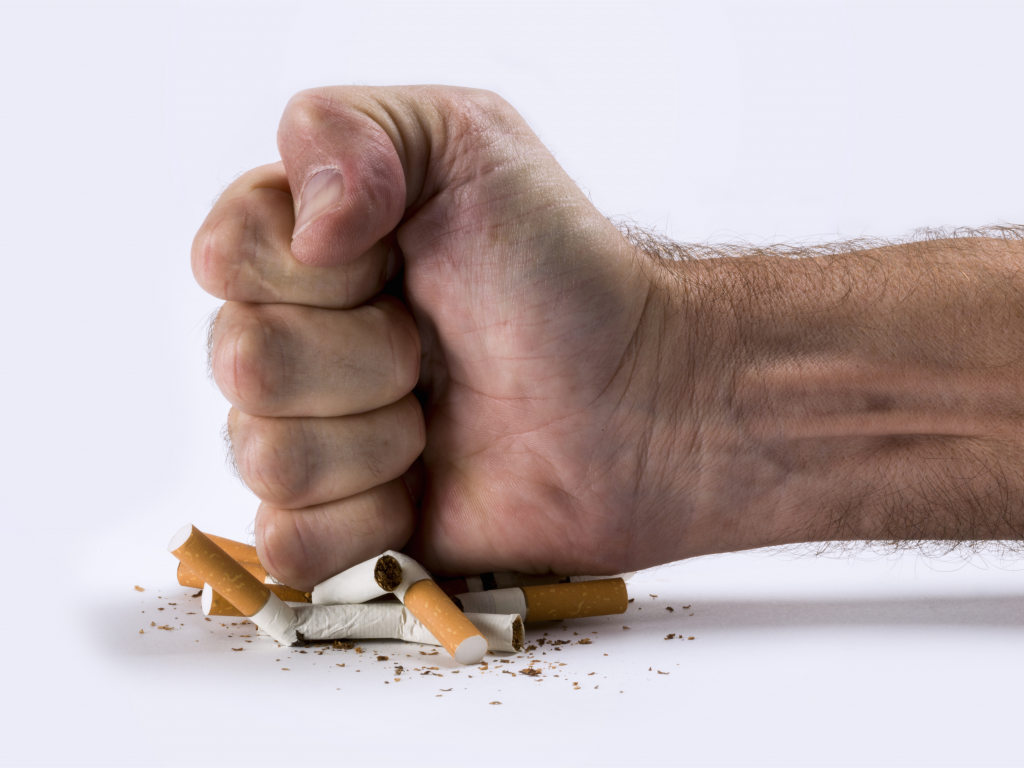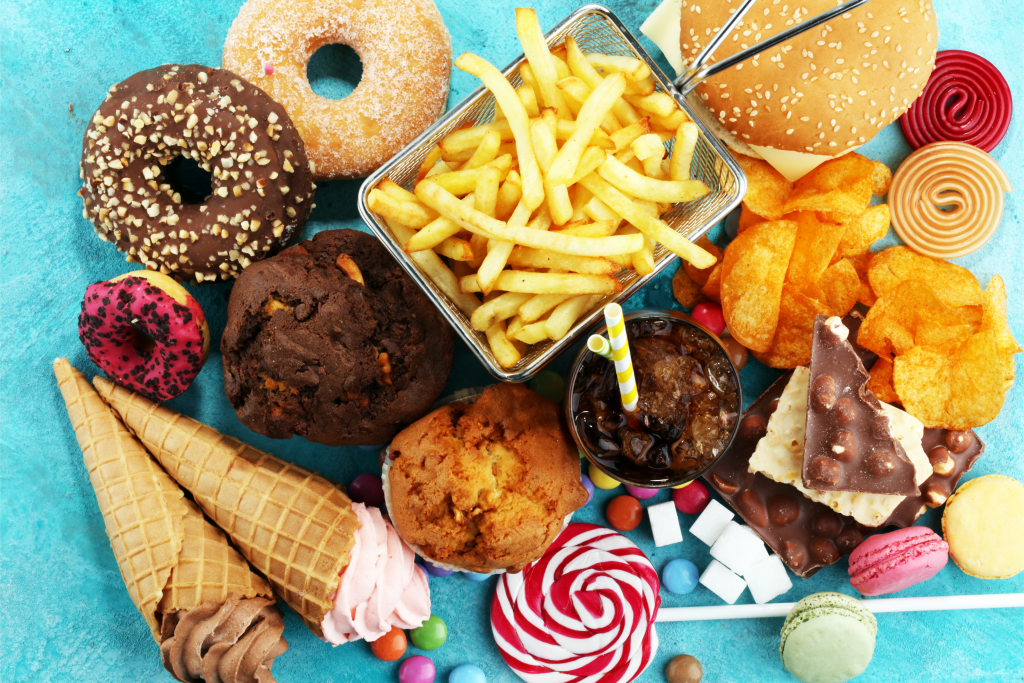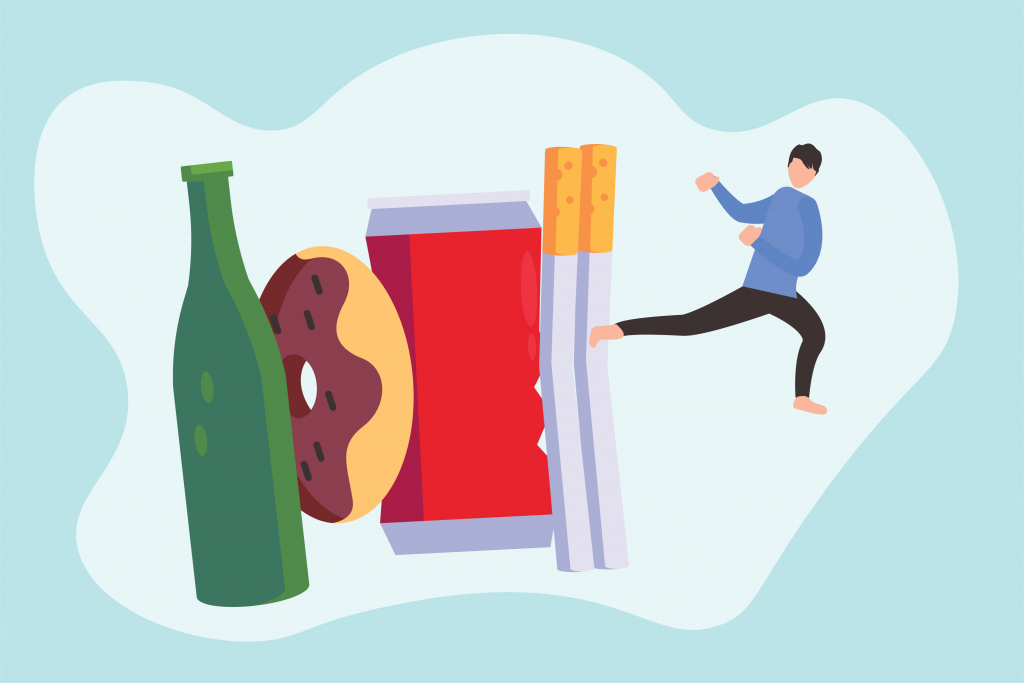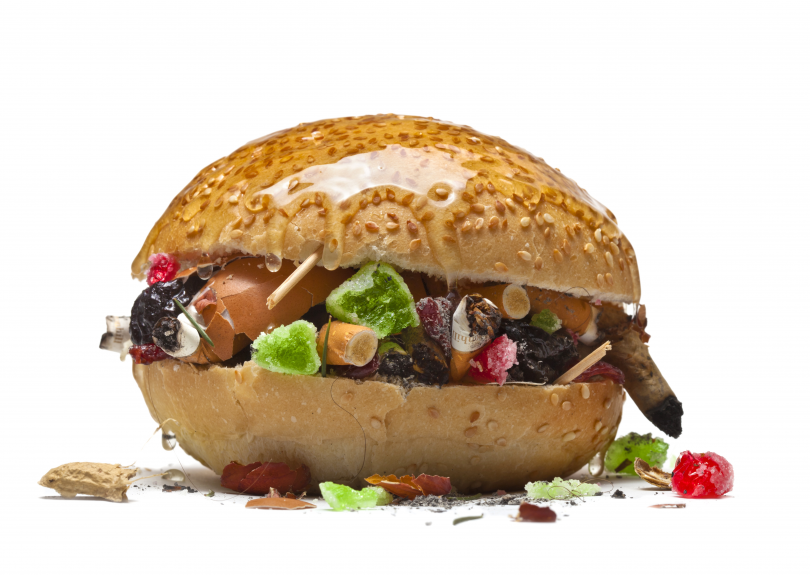One of the biggest complaints of people quitting smoking, is that they eat more and gain weight. According to new research, this is true, and those attempting to rid themselves of the habit are more likely to pack on the pounds. Here’s why, and some possible options for appetite control.
Quitting smoking is hard enough without considering the possibility for weight gain. With a little self-control, however, the withdrawal period can be traversed without extra pounds put on. We cover everything in the world of smoking and cannabis, which you can follow-along with by signing up for THC Weekly Newsletter. You’ll also receive direct access to deals on products like vapes, edibles, and tons of other cannabis paraphernalia! Along with deals on cannabinoid compounds like HHC-O, Delta 8, Delta 9 THC, Delta-10 THC, THCO, THCV, THCP & HHC, which you can access in our “Best-of” lists. But… *If these products make you uncomfortable, we advise that you not use them. The cannabinoid industry is confusing and we don’t promote anyone doing anything they are not comfortable with.
Smoking withdrawal
Whether you’ve ever smoked a cigarette or not, you should be familiar with the effects of nicotine withdrawal. This is because so many people do smoke, and at any given point in time, plenty are trying to quit. By a certain age, unless you’re from a super restrictive community, you’ve either gone through it yourself, or witnessed someone else in the process.
Luckily, nicotine withdrawal is not a life-threatening withdrawal, and the worst of it is someone acting like a jerk for a few days to a couple weeks. This makes sense, as one of the biggest symptoms of this withdrawal (and pretty much any withdrawal) is agitation. Not only is the brain agitated over not having something it’s used to, but the person experiencing the withdrawal will be going without the constant reward to their pleasure system that cigarettes create by way of dopamine increases.
Nicotine withdrawal starts within the first few days of quitting cigarettes, and can last up to a few weeks. Symptoms vary between quitters, but generally involve some combination of the following: irritability, anger, impatience, sleep problems, concentration problems, depression, anxiety, restlessness, hunger, weight gain, and intense nicotine cravings. Nicotine binds to nicotinic cholinergic receptors in the brain that cause extra dopamine release.

Repeatedly smoking nicotine causes neuroadaptation, which is tolerance to some effects. As a part of this, the number of binding sites increases on the nicotinic cholinergic receptors in the brain, likely as a response to the desensitization of the nicotine-mediation of these receptors. This desensitization is “ligand-induced closure and unresponsiveness of the receptor”…and “is believed to play a role in tolerance and dependence: the symptoms of craving and withdrawal begin in smokers when desensitized α4 β2* nicotinic cholinergic receptors become responsive during periods of abstinence, such as nighttime sleep. Nicotine binding of these receptors during smoking alleviates craving and withdrawal.”
When a person quits, those receptors become sensitized, and without the ability to desensitize them, the person will experience symptoms of withdrawal. “Thus, smokers are probably attempting to avoid withdrawal symptoms when maintaining a desensitized state. By sustaining sufficient levels of plasma nicotine to prevent withdrawal symptoms, they also derive rewarding effects from the conditioned reinforcements associated with smoking, such as the taste and feel of smoke.”
Does quitting smoking, mean you eat more?
While it might not be the top reason for a smoker to continue smoking, one of the common complaints of quitters is the inability to control their appetite, and the subsequent weight gain, since the former smoker is eating more. How much are the two related? A study from last year delves right into it.
Entitled Tobacco withdrawal increases junk food intake: The role of the endogenous opioid system, the study intended to find if withdrawal leads to more junk food being eaten – specifically defined as foods high in salt, fat, and sugar. And if eating said junk food during this period involves the endogenous opioid system. In order to do this, 76 smokers were randomly split into two groups of 42 and 34. The group of 42 was made to abstain from smoking for 24 hours, and the group of 34 was left to keep smoking at normal rates. A third group of non-smokers, comprised of 29 people, was also used for comparison. All participants were between 18 and 75 years of age.
Two lab sessions were done with participants either being given placebo, or 50 mg of naltrexone, a drug used to reduce cravings. After the sessions, the participants were given a snack tray with different options of junk food, with self-report measures for mood taken right before the snack tray was introduced. “Generalized linear and logistic models were used to assess the effects of acute smoking withdrawal, drug, and sex on the intake of snack items and self-reported measures.”
Though no difference was found for low sugar and low fat foods, it was found that quitting smoking led participants to eat more calories, with those receiving naltrexone showing less likelihood to choose the high fat foods. Smokers going through withdrawal consumed more calories than the non-smokers did.

The study backs up the idea that those quitting smoking tend to not only eat more, but to consume lower quality food. It was also found that “the opioid system may be a mechanism of withdrawal-induced intake of junk foods.”
Why would this be the case?
In terms of why this is the case, the study didn’t seek to go into this, but there are things to consider that might explain the phenomenon. After all, smoking provides constant rewards for the brain in terms of a nicotine hit that leads to a dopamine increase, and the re-desensitization of receptors. What else causes dopamine increases? Eating. And what foods cause large dopamine increases? Foods high in sugar and fat.
At a time of withdrawal, the body is in a state of agitation since it can’t get the substance its used to getting, which allows for more dopamine to be released, and for the standard process of desensitization to occur. In order to help quell the withdrawal, the ex-user might be more inclined to consume foods that also give this same dopamine kick. Thereby replacing nicotine with food. Especially when cigarette cravings are high, junk food probably feels like a good replacement.
So it’s not shocking that people quitting cigarette smoking tend to eat more food, and not only that, to eat more low quality foods that kick off the pleasure centers in the brain. If a person no longer wants the junk food after the nicotine withdrawal has faded, then food replacing cigarettes is temporary. The problem with using such food to replace nicotine, however, is that such food – because it also causes similar dopamine releases – also has an addictive quality, and eating more could become a standard habit.
It should also be remembered that nicotine is a stimulant, and stimulants decrease appetite. Not only can junk food be addictive on its own, but once a person assimilated to a stimulant, isn’t getting that stimulant anymore, their body slows, and hunger increases. This might not be the case in every example of cigarette cessation, but it is a commonly seen effect of quitting smoking to eat more food, and to show more weight gain.
How to not gain weight when quitting smoking
Trading one bad habit for another isn’t really helpful in the end, and its not the idea of anyone quitting smoking, to eat more and gain weight. Since we know this can be expected, however, people attempting to quit have a few things they can do to stave off the hunger and weight gain, or at least to deal with it in a healthy way.

Like having healthy snacks around. Just because you might be craving something unhealthy, it doesn’t mean you can’t derail your brain by giving it something healthy instead. At a time when new patterns are being formed to replace old ones, it’s a good time to start with healthy patterns which hopefully become the norm.
Another thing often pointed at to help with weight gain due to increased eating, is to exercise. Not only is this a healthy behavior, but it helps to burn off extra calories that are eaten during this time. Exercise also helps the body regulate itself better, meaning at a time of instability, exercise can help a person feel better, and to keep their metabolism high.
Take notice of portion sizes. Just because you feel super hungry, doesn’t mean you have to lose all control. By being careful about how much you’re eating, you can make sure not to over-consume calories just because you feel more hungry than usual. Along with this, a person can eat several smaller meals in order to more frequently satiate the appetite, and to keep food intake consistent until the body stabilizes out.
Quitters might also want to access resources in the form of medications that can help. While there are prescription medications available like naltrexone, there are also options like CBD, and psychedelics, the latter of which have recently gained momentum for their ability to help with addiction. It’s okay to need assistance sometimes, and those dealing with withdrawal have non-addictive options that can help. Quitters interested in psychedelics can look into ketamine therapy, as its widely available in clinics, where it can be prescribed for off label use as an addiction treatment.
Conclusion
Fear of gaining weight is one of the things that might make a person reticent about quitting smoking. But it doesn’t have to be an issue so long as the quitter is mindful of their body during this time. Nothing lasts forever, and if an ex-user can get through the initial period of quitting smoking without allowing themselves to eat more, there is no reason to believe that the increased hunger should last forever. Smoking is a bad habit, and quitting is the healthier option. Just best not to replace an addiction to cigarettes, with an addiction to junk food.
Welcome to the site! You’ve arrived at CBDtesters.co/Cannadelics.com, your penultimate web spot for the most comprehensive independent news coverage of the cannabis and psychedelics industries. Join us frequently to stay informed on the quickly-moving landscape of cannabis and psychedelics, and sign up for The THC Weekly Newsletter, for your daily dose of industry news.
Disclaimer: Hi, I’m a researcher and writer. I’m not a doctor, lawyer, or businessperson. All information in my articles is sourced and referenced, and all opinions stated are mine. I am not giving anyone advice, and though I am more than happy to discuss topics, should someone have a further question or concern, they should seek guidance from a relevant professional.









